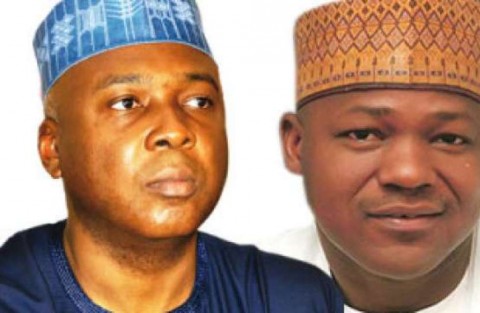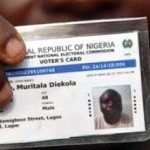Opinion: Reviewing Our Legislators’ AYEs And NAYs
Articles/Opinion, Latest Headlines Saturday, October 24th, 2015
By Adewale Kupoluyi
BALTIMORE, MD (AFRICAN EXAMINER) – A few days ago, I was watching some legislative proceedings in one of the parliaments in the country when the speaker demanded the response of his colleagues to an important national discourse. In the usual conversation, the presiding had asked for either ayes or nays. After carefully listening to the responses given by the law makers, it was obvious that majority of them opted for nays but to my surprise, the speaker banged the gavel and declared that the ‘ayes have it’. I was shocked by the verdict!
In some nations of the world including Nigeria, it is the usual tradition and practice for law makers to adopt voice vote by adopting the use of ayes (yes) and nays (noes) in taking decisions on important matters during parliamentary sessions. Section 56 of the Constitution of the Federal Republic of Nigeria (as amended) provides that questions posed in the Senate or House of Representatives shall be determined by simple majority of the members present by voting. Similarly, in Rule 72 of the Senate (Upper Chamber) Standing Order, the National Assembly recognizes three modes of voting namely: voice votes, signing of register in a division and electronic device. The rule also applies to the Lower Chamber of the National Assembly, which is the House of Representatives.
These modes of voting can further be sub-divided into two groups; the recorded votes and unrecorded votes. Voice votes fall into the unrecorded category, while division and electronic voting are classified as recorded votes. Rule 71(3)(4) specifically states that the President of the Senate or chairman of the legislative house, at the conclusion of the debate, will ensure that votes shall be taken by voices of ayes and nays while the result shall be declared by the presiding officer. Due to the observed discrepancies in the approach, there is the need for our parliament to embrace the use of technology, move away from avoidable acrimony and be more accountable to the people who empowered them better than the current arrangement.
Although few advanced democracies still rely on the voice vote mode, its disadvantages seem to outnumber the merits. The first demerit of voice vote option is the inability to record votes thus preventing the electorate from knowing their representatives’ voting patterns and know whether it is in tandem with expectations. This practice has also made it difficult for the citizenry to assess their legislators in terms of performance. Secondly, it does not show sophistication and decorum. Many people are of the opinion that a more decent way of taking parliamentary decisions should be evolved. Thirdly, declaring voice vote’s result is usually unscientific, prone to manipulation and rather based on the opinion and discretion of the presiding officer and not on what really transpired, as I have observed in the first paragraph of this essay.
Just like in that scenario, there have been cases where clearly the ‘ayes have it’ but the presiding officer chooses to do the opposite by declaring that the ‘nays have it’. What is then democratic about this practice that we should still be using it? Should bills or motions affecting the general public be reduced and subjected to the whim and caprices of the presiding officer? Certainly, this type of voting pattern has the tendency to breed lawlessness and disorderliness. Most crises that had broken out in our legislative chambers have been found to be ignited by the outcome of the voice votes of members that are not in agreement with others causing open confrontation. It has been observed that voice vote has led to most violent confrontations and walk-outs in the annals of the National Assembly.
USAfricaonline in its report of May 18, 2010, indicated the effect of such controversial decision-making procedure while confirming the former President Goodluck Jonathan’s nomination of ex-Vice President Namadi Sambo by the National Assembly. In the report, the Senate and the House of Representatives were said to have been enmeshed in controversy over the confirmation of Sambo, who was once the Kaduna State Governor. The voice vote, as a face-saving measure, was said to have been adopted to prevent scuttling the confirmation in view of some “contentious allegations”, raised by those that objected to his candidature. While the Upper Chamber had a relatively non-rowdy session, the process was said to have even been raucous in the Lower Chamber because many members allegedly expressed more displeasure over the method by shouting against the nomination. Hence, the flaws inherent in the approach could be used contrary to democratic tenets.
On the other hand, adopting division as an alternative is commonly used when law makers have the cause to challenge the opinion of the presiding officer and when a particular legislator is unsatisfied with the rulings from the presiding officer, he/she could claim a division. This process involves legislators voting ‘ayes’ and physically moving to one side of the chamber while the nays move to the other side. This could be said to be similar to the open ballot system of voting. Unfortunately, this approach has a major shortcoming of time wastage. One can guess the amount of time that would be wasted if a legislative house needs to vote on more than one bill a day. Hence, adopting the division voting for all the bills would be time consuming, cumbersome and problematic.
On a final note, the Nigerian legislative houses should be equipped with modern day electronic voting equipment for efficient and effective pursuance of parliamentary tasks. We can realise this if we muster the necessary will to do so. Parliaments in countries such as South Africa, India, Mexico, Norway, Israel, Japan and Hungary, among others, have embraced the use of electronic system of voting. Using electronic voting should solve the challenges being posed by division and voice vote options that we grapple with. Developmental process allows for doing things in a better way. Hence, we could give it a trial hoping that it would improve the procedure and quality of the nation’s legislation. This should then be a pending and important task before our federal and state law makers.
Kupoluyi writes from Federal University of Agriculture, Abeokuta (FUNAAB), adewalekupoluyi@yahoo.co.uk, @AdewaleKupoluyi
Related Posts
Short URL: https://www.africanexaminer.com/?p=26685






















